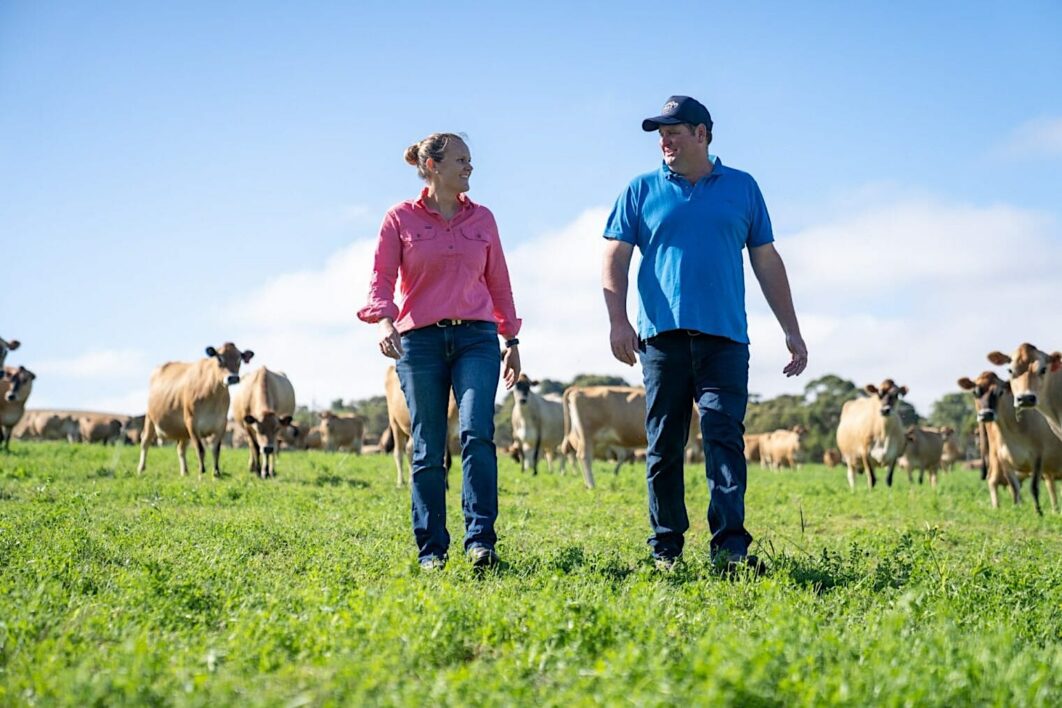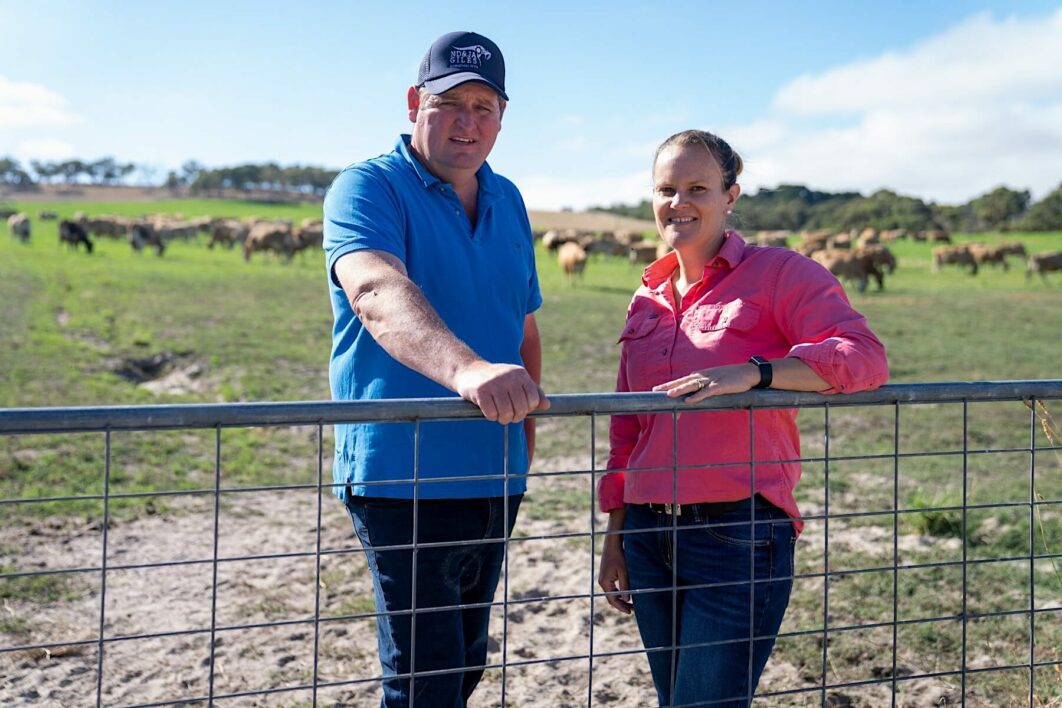Ben and Katie McHugh’s investment in four robots at their Mount Compass dairy is driving improvements in both milking efficiency and animal health.
Ben, a third-generation dairy farmer, runs a mixed farming business in partnership with his brother David and his wife Jane, and his parents Kym and Heather.
“We’ve always been dairy farmers as our core business, and we’ve always been confident about the industry,” Ben said. “There was a decade of pretty ordinary milk prices, which was hard, but because we grow our own grain, hay and silage, we were able to control some of our input cost a bit.
“Now that we’ve had a few years of industry growth and better milk prices, we felt it was the right time to expand our operation, and we embarked on new technology with robotics.”
The McHughs decided to build a new robotic dairy on a different part of their farm to their existing herringbone dairy, and split their milking herd in half, with 200 cows at each dairy. The first milking in the new robotic dairy occurred in November 2023.
The new dairy is completely off-grid and powered by 100% renewable energy. The system consists of 215 solar panels and 192 kWh of battery storage.
“When we looked at building the new dairy, we realised that upgrading to three-phase power was going to be a massive investment, so we looked at solar and realised it was within reach financially and it made sense from a sustainability point of view,” Ben said.

The robotic dairy is delivering big benefits in animal health. “The cows present for milking voluntarily – they’re not being herded, they’re not being pushed, and they’re not standing on concrete for long periods of time,” Ben said.
“We haven’t had anywhere near as many cases of mastitis or foot issues. The robots pre-clean the teats of the cow, and then milk the cow on individual quarters. If the cow has more or less milk in one quarter, it won’t under-milk or over-milk that quarter, which is a huge plus for animal health.
“The robot will then teat spray with the same robotic arm that attaches the cups to the cow. The robot also tests each individual quarter of the cow for MDI each milking and logs the results for the early detection of mastitis which will show a spike before there are any visual signs of mastitis, which allows early and effective treatment for mastitis.
“Then between each cow, the robots are automatically washed and cleaned, so you’re not spreading contamination between cows.”
Ben said his cows are content to move around the robots for feeding and milking, without being prompted.
“The cows naturally want to be milked so they move to the robots for milking and then move to the feed – they’re comfortable to do that on their own,” he said.
“It’s a big change from our herringbone dairy, where we are very structured and hands on. In the new dairy, the cows come and go as they please – they are happier and calmer.
“It was a challenge for us initially to sit back and let the cows and robots do their thing, but the robots are milking the cows better and they are milking more consistently. It’s a game-changer for the dairy industry.”
Moving half the herd to the robotic dairy has also made milking more comfortable in the existing herringbone dairy. “Towards the end, we were milking nearly 400 cows, which is a lot more than that dairy is designed for,” Ben said.
“It’s more comfortable and more efficient in the old dairy now. The plan over the next couple of years is to grow our herd numbers up to around 250 cows in each dairy.”
For the McHughs, building a robotic dairy is also about providing opportunities for the next generation.
“Katie and I have three young boys, Tom, Henry, and Sam, and my brother has kids as well. Moving to robotics makes dairy more attractive for the next generation,” Ben said.
“And getting away from the monotonous 3am alarm for the first milking makes the industry much more attractive.”
The McHughs may convert the old herringbone dairy to robotics in the future if milk prices continue to remain sustainable. They were one of the original farms to commence direct supply with La Casa Del Formaggio in 2014.
“One thing Claude Cicchiello, La Casa Managing Director, said from the very beginning is that he never wanted us to be producing milk for below the cost of production,” Ben said.
“La Casa was the first processor to build a floor price into their milk contracts. The dairy industry has seen some pretty low points over the past decade or so, but thanks to that floor price, we were still able to make some money to re-invest back into the business.
“Thankfully, the milk price for all dairy farmers has increased over the past few years and the industry is looking bright because the demand for milk is there.”
